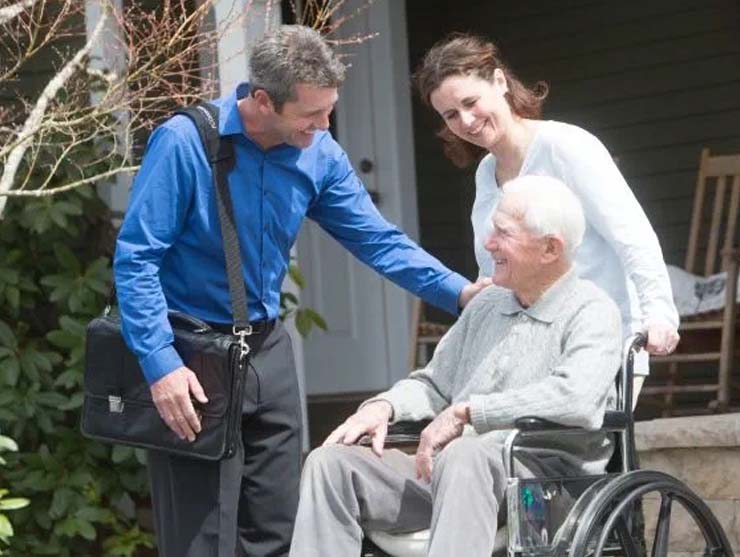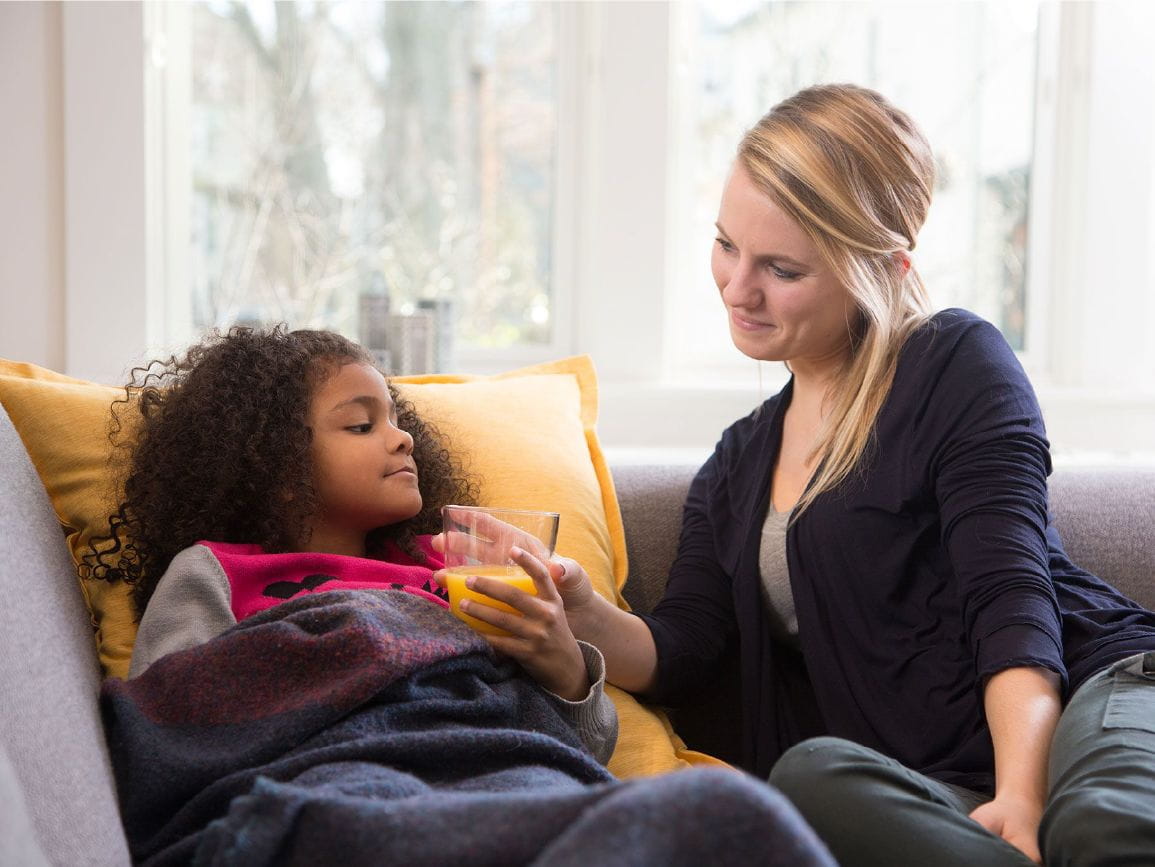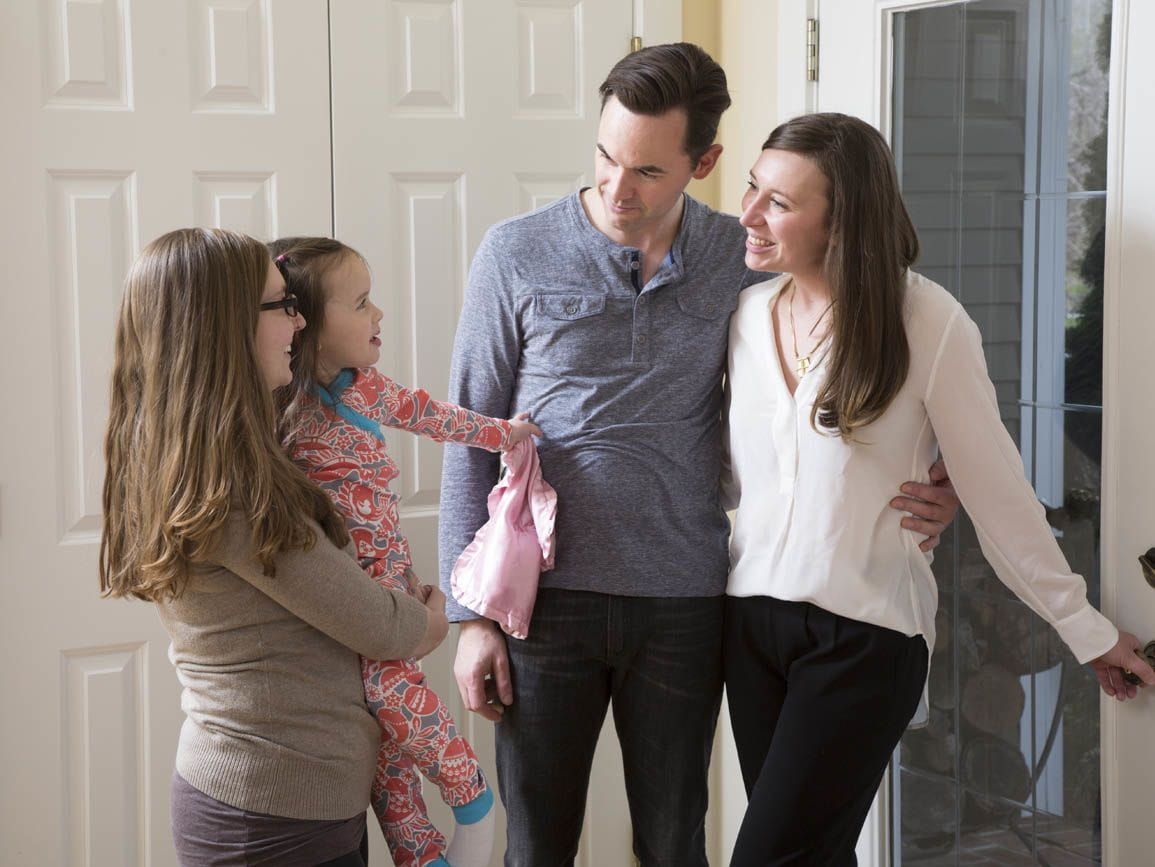Today’s post comes from a Bright Horizons Client Engagement Manager.
In today’s busy world, we oftentimes find ourselves stressed about the things that overextend and overwhelm us, but by the same token, that very stress shows just how much we care. Being a member of the sandwich generation touches on both. As a dual caregiver, I regularly feel full of both love and worry, and because that worry-love is divided in two – for my children and my parents – it can be a particularly challenging thing to balance.
What is the Sandwich Generation?
The “sandwich generation” refers to a generation of people who care for their aging parents while also supporting their own children. The American Psychological Association’s 2007 Stress in America survey states, “mothers in this group, ages 35-54, feel more stress than any other age group as they balance the demanding, delicate acts of caring for growing children and their aging parents.” And boy, can I relate to this!Feeling the Squeeze
I am a 35-year-old woman with young children ages two and five, and parents in their early 70s. While I have a large support system of friends in this demographic, in most cases, their situations are very different from mine.
Though my parents are less than five years into their retirement, our family has been on an almost 10-year journey with my father’s advanced form of Parkinson’s disease and heart disease. It has been a decade full of ups and downs – from extended visits to the hospital, to multiple surgeries, to a few miracle recoveries, thanks to the wonder of modern medicine. All throughout, the progressive nervous system decline of Parkinson’s has slowly worked its way into not just my dad’s life, but the lives of my entire immediate family.
While we are fortunate that my mom is healthy and well and able to take on the primary caregiving responsibility for my dad, keeping him safe 24 hours a day is a team effort. My sister and I (and our husbands) share in all of the emotions that come along with having a serious illness like this in the family.
In addition to this, I have two young children at home that rely on their parents for everything, every day. Raising and caring for children takes our whole heart, mind, and body. Juggling that with eldercare responsibilities (not to mention career, marriage, friendships…the list goes on) makes for a challenging balancing act. But if you are anything like me, you wouldn’t have it any other way. We love our parents and we love our children. And we are so incredibly lucky to have them both in our lives.
If you find yourself in this very common, but often overlooked category, you are not alone! Here are some things I have found to be true as a member of the sandwich generation.
4 Things to Know About Being in the Sandwich Generation
1. We might have to be the responsible party while “pretending” to be the minor.
For your sick/aging parent, especially with neurological and physical limitations, you may have to help them stand up and walk, explain things to them, patiently wait while they try to explain things to you, speak with doctors and nurses, and pitch in around the house. While these actions are necessary, they can sometimes be uncomfortable. When you have spent your entire life thus far as the minor, the one being cared for, it is a strange adjustment to take some of that responsibility away from your parent and give it to yourself. I find myself performing these actions while slyly pretending I am not. I have mastered the art of casually walking behind my dad pretending to be interested in the nearby pictures on the wall or plants, ready to catch him when he inevitably stumbles. Have you and your parent had a direct conversation about this role reversal, or do you “play along” like I do, keeping in mind everyone’s egos and feelings?2. We might feel strained by a shrinking “village,” emotionally and logistically – and that can be hard.
Raising young children takes a village. Especially when you come from a dual-working family and have the pressures of two jobs, it is crucial to have additional support. But when you can’t burden the grandparent generation any further than they are already burdened by their own care needs, this pool of available “helpers” inevitably dwindles.
In addition, as young parents, we often don’t feel like we know what we are doing. Every new experience with our children is just that: brand new…and sometimes scary. We often turn to our parents for emotional support – not just for affirmation that we are making the right moves, but for a shoulder to lean on when things get hard. And parenting can be HARD. But when your parents have real and serious things they are dealing with on their own, it’s difficult to burden them with more, even if we’re craving their support.
3. Caring for aging parents can be a “hidden burden.”
Caregiving isn’t just about the kids, though it is often mistaken as such. At work, people will often talk about and display photos of their children, but they may conceal the fact that they are the primary caregiver for an adult loved one as well. This can make it difficult to feel understood and supported at work, which may ultimately lead to an unhappy and unproductive employee.4. There can be a silver lining - like enjoying time together as a multi-generational family.
Though this is a challenging generation to be a part of, it can be a rewarding one as well. In my case, I am helping to care for a loved one that is now mostly at home. My parents would love to be traveling, socializing, and picking up new hobbies, as most retired people do after a long life committed to careers and family. Since my parents aren’t able to do that, we make the most of our time spent at home. Cue the adorable 2- and 5-year-olds!
In all seriousness, my children bring immense joy to my parents’ lives every day. They are silly, loud, and messy, yet filled with the wonder of learning new things every day. This brings excitement and happiness to my parents’ house, which most days is in need of a pick-me-up. I find short-but-frequent visits are the best way to keep these two generations connected. Not to mention, when we are there as a group, my mom is able to take a break. I can sit with my dad and focus on him, while she can have some lighthearted fun blowing bubbles, tracing hands, building with Legos, and preparing a massive amount of snacks.
Can you relate to being squeezed in different directions? How has it affected you? Do you have any tips for others in this group?
The Work-Life Equation Podcast: More of Your Caregiving Questions—Answered
We answer your questions about caring for an elder loved one.More on the Sandwich Generation
- Read more posts about the sandwich generation from the Family Room bloggers.
- Many adults today are faced with challenges of raising kids and caring for their elderly parents. Read these tips to help manage the responsibility of elder care.





